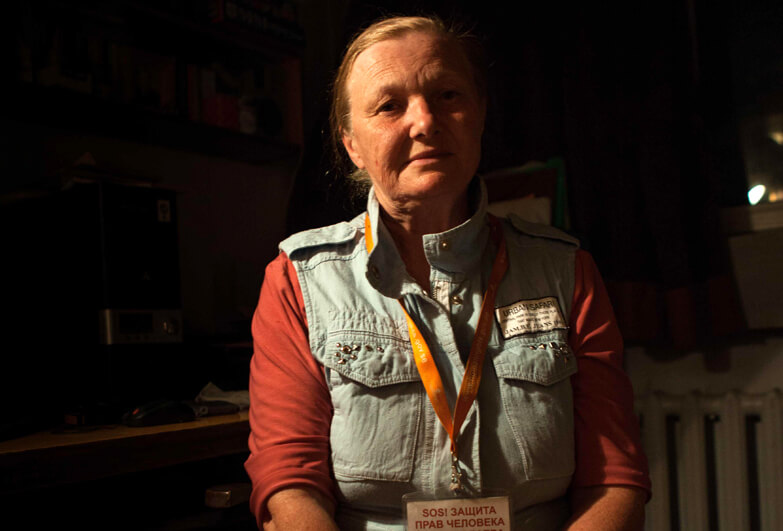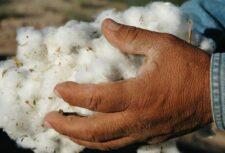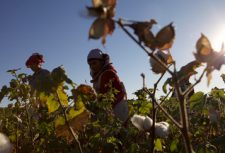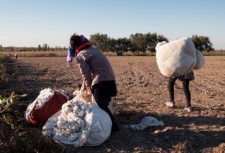Disclaimer: This article is more than 7 years old, and may not include the most up-to-date information or statistics. Please verify information with more recent sources as needed, and if you have any questions contact our Press Office.
Elena Urlaeva’s arrest demonstrates that the Uzbek Government has no intention to end its forced labour system, writes Louise Eldridge.

17 March 2017
Anti-Slavery International is extremely concerned about the latest incarceration of prominent Uzbek human rights activist Elena Urlaeva.
Elena has been working for over a decade to raise awareness of ongoing forced labour in Uzbekistan’s cotton sector. Her arrest demonstrates the hostile climate for independent forced labour monitors, and the lack of genuine commitment by the Government to end its use of forced labour.
Urlaeva was arrested earlier this month[KS1] , beaten by Uzbekistan police and detained in a psychiatric prison on forced medical treatment – just one day before she was due to meet with the World Bank, the International Labour Organization (ILO) and the International Trade Union Confederation (ITUC) to discuss ongoing forced labour in Uzbekistan.
It’s not the first time that she’s been detained by the authorities. During the 2016 harvest, Urlaeva was repeatedly arrested and harassed, on one occasion being detained, interrogated and subjected to full body cavity searches. She has been forcibly placed in psychiatric treatment repeatedly in the past, most recently for three months beginning in March 2016.
The arrest is symbolic of the climate of harassment and repression facing activists documenting forced labour in the cotton sector.
Other activists documenting the cotton harvest have faced similar treatment. In 2015 Uktam Pardaev, member of an independent cotton harvest monitoring group, was arrested on trumped up charges, held for eight weeks, beaten, pressured to confess and is now living under 3 years’ probation at his home under constant surveillance by security services.
Mass state-sponsored forced labour persists and Uzbekistan’s human rights record remains abysmal. From early September until early November 2016 the Uzbek government ordered the mobilisation of public sector workers, students and employees of public and private companies to pick cotton. Preliminary findings of the Uzbek-German Forum for Human Rights show the pattern and scale of mobilisation remained the same as in 2015, affecting over a million people. Many are threatened of a loss of job or benefits if they do not comply.
Watch our short documentary from 2016 cotton harvest, featuring Elena’s work:
The arrest reveals the reality – the Government does not intend to eradicate forced labour despite claiming otherwise on the international stage.
It is significant that Urlaeva’s arrest came shortly before she was due to meet with ILO representatives. Whilst allowing the ILO to conduct monitoring of the cotton harvests, the Uzbek government has taken extraordinary measures to cover up its use of coercion, rather than taking genuine steps to end its use of forced labour.
Monitoring units are highly controlled by the state and do not include participation of independent civil society groups. A recent monitoring report released by the ILO fails to mention the repeated arrests and harassment of independent Uzbek activists and journalists for their attempts to monitor the cotton harvest.
It is vital that international scrutiny remains on Uzbekistan.
In December 2016, despite the warnings of international human rights organisations, the European Parliament voted consent for a textile trade deal to free up trade with Uzbekistan, effectively condoning state-led forced labour.
The European Parliament ought to step up its monitoring of the situation in Uzbekistan and call on the EU institutions to strongly condemn this conduct. The EU should be prepared to withdraw this agreement should mass forced labour, and the brutal persecution of independent monitors such as Elena Urlaeva, continue in further harvests.
In addition, investors such as the World Bank should stop funding projects in Uzbekistan and international businesses should be more vigilant to ensure they do not use Uzbek cotton tainted by forced labour in their supply chains.
Please help us step up the pressure on the European Parliament and the World Bank to do more to free Elena by retweeting this tweet. Please also share this post widely to spread the message.
Thank you.
Follow Louise on Twitter: @louise_eld
Update
On Friday 23 March Elena Urlaeva was freed from detention! Her son who passed on the news said she looks normal.
Elena, who for years has campaigned against forced labour in Uzbekistan’s cotton industry. She spent 23 days in psychiatric hospital without court decision authorising her forced treatment.
Thanks to all who took action and spread the news on social media to put pressure on Uzbek authorities to release Elena.
Her detention was a sign that Cotton Crimes are still rife in Uzbekistan.





